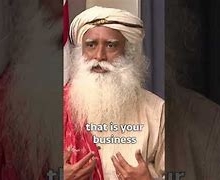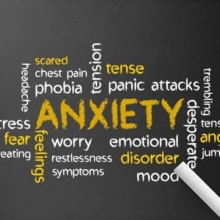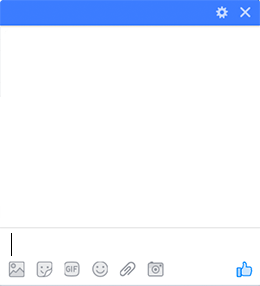Allow things to unfold and you will find your purpose in life | Peggy Oki | TEDxQueenstown
Translator: Phuong Cao Reviewer: Queenie Lee (Video starts) Peggy Oki: Oh my God! (Laughter) Captain Andy: It’s a whale. (Video ends) That was me in the background saying, “Oh my God!” while I was visiting with some humpback whale researchers in Alaska. The guy on the deck shouting, “It’s a whale!” (Laughter) that’s captain Andy, who happens to be a humpback whale researcher with quite some enthusiasm even after seeing hundreds of humpback whales.
00:01:05
And I’ve had a large number of encounters with dolphins and whales myself, and I still feel very excited when I see them.
00:01:14
I’m just inspired by the graceful movement of a 100-to-150-tonne whale, seeming to be moving so effortlessly through its fluid movement in the ocean. And I’d emulate that style – that’s just graceful, I love that graceful movement – in the things that I try to do in my surfing and skateboarding. Over 40 years ago, I was the only female member of the famous Zephyr skateboard team, featured in Dogtown and Z-boys.
00:01:43
We were known to live a little bit outside the box, be a bit rebellious. While lots of kids were trying to figure out how to stay out of school, we were getting into them to skate the banks, and getting in to skate the pools, which led to our surfing style that was our trademark: vertical skateboarding, that led to what you see in today’s X Games. And of course, I still love surfing that I’ve been doing for over 40 years. The action of surfing waves; but also, I get a lot from just the thousands of hours I’ve spent sitting on my board waiting for waves in between that time, of just having the rhythms of the ocean beneath me, and encounters with sea life and seabirds coming around. At the time I was on the skateboard team, I was also studying field zoology and environmental biology. I had a real interest in animal behavior, especially in the social behavior of dolphins and whales.
00:02:46
They are also known as Cetaceans, and I refer to them as Cetacean Nation. Orcas, the largest member of the dolphin family, stay together their entire lives. Sperm whales.
00:03:00
I’m a sperm whale groupie. (Laughter) They are the world’s largest toothed mammal. They possess the world’s largest brain.
00:03:10
They can dive to depths of 2,000 meters and hold their breath for up to an hour. But what really touched me the most about them as I was learning about their behavior is that even in fatal conditions, where their lives are in danger, they will never abandon their injured or sick. As I was studying animal behavior, scientists were coming out and saying that play is a sign of intelligence. And here we are with dolphins surfing.
00:03:39
Another connection that I feel to these beings as a surfer myself and seeing dolphins as I’m surfing and they are surfing waves too. Whales also surf.
00:03:49
Imagine a school bus dropping in on a wave at Pipeline. (Laughter) It’s happened.
00:03:56
(Laughter) If that’s not enough to impress you about Cetaceans, there are many stories of dolphins encountering humans.
00:04:04
And this is one from Whangarei in New Zealand 12 years ago, a lifeguard, a father of three, had his three daughters out swimming for practice off of ocean beach, 100 meters out, when seven dolphins approached them, slapping their flukes, circling these swimmers, almost as if they were hurting them. They weren’t afraid of dolphins, so they just kept swimming and thought, yeah, this is pretty cool. But a lifeguard from the shore saw what was going on, he thought it was really odd too and decided to go check it out.
00:04:34
He got on his little boat, went to just outside of where the dolphins were and into the water, and what did he see? A three-meter long shark, a great white shark. What a great day to have dolphins swimming around you! (Laughter) In the 20th century alone, nearly three million whales were killed. Many of them are still endangered.
00:05:00
In the early 80s, thanks to protests and public outcry, the International Whaling Commission announced that in 1986, they were going to have a moratorium on commercial whaling. A victory.
00:05:13
We saved the whales. I remember that day.
00:05:17
I would remember that time that “Wow, the whaling was going to end.” Despite the millions of whales that have been killed, there has never been a known attack of a whale on a human.
00:05:31
Imagine a world without war, revenge, or retaliation, one of forgiveness and compassion.
00:05:38
I pondered the wisdom of whales, and I thought, what would it be like to look into the eyes of a whale. So I created this painting of a gray whale’s eye. And then, in less than a year, on Christmas morning in 1999 while I was surfing a great spot down in Southern California, catching really fun waves, I paddled back out and sat on my board waiting for my next wave, a gray whale, 15 meters away from me, just 15 meters away, lifted its head up out of the water, like the periscope of a submarine, looking around and it looked at me, our eyes met, and I was just ecstatic; I was blown away; I had no fear at all.
00:06:20
This whale was so close to me, but I was just in awe. And then, the whale just went back underwater, and right next to it, another gray whale surfaced, raising its huge arching back out of the water and just going back underneath, and they disappeared. I knew how rare that experience was. That’s very rare for whale, to come that close to a human in their own environment. So I felt I needed to look into it.
00:06:50
What was going on with whales at that time? Little did I know that that experience was actually going to be changing my life. I found out that despite the moratorium when the whales were supposed to be protected in 1986, that they were still being killed.
00:07:06
And numbers of up to over 1,800 whales were being killed every year. Between Norway’s commercial whaling activities and the scientific whaling of Japan, and Iceland recently joining in as well. In 2007, the Japanese government announced that they were going to Antarctica to kill 50 humpback whales. As an artist, I felt I needed to do something about it.
00:07:32
So I came up with an idea of painting a portrait series of 50 humpback whales based on photo-identification records of actual humpback whales sighted off of Antarctica.
00:07:45
The markings on humpback whales are as unique as the fingerprints on a human.
00:07:50
These are sentient individual beings that I wanted to somehow help. So, I did this art series, which may have seemed a bit obsessive, I was wondering if people would think, “Oh, she’s really crazy.” But actually, the show was quite well-received, and I was really glad that I was able to do something like that.
00:08:07
I also tried to raise awareness and appreciation of Cetaceans by doing large paintings of them; such as for whales. This is an oil on board that is one and a half meters wide of a sperm whale fluke, and it is big, but a sperm whale is actually twice the size of that. This particular painting caught the attention of the Santa Barbara Whale Festival organizer, who invited me to come up with children’s whale art activities at the Santa Barbara Whale Festival.
00:08:35
So, I thought of origami whales.
00:08:38
What about a goal, something meaningful with this effort, OK. 1,400 origami whales to represent the number of whales that was going to be killed in that year. It seemed like a huge endeavor, but the whale festival, we got children coming in, people of all ages folding origami whales. We got halfway there and working with animal welfare organizations who posted information about my campaign on their websites. People from all over the country of the United States.
00:09:08
People from all over the world started sending me origami whales. And I reached that goal, and then was provided the opportunity to present these whales to the International Whaling Commissioner of the United States. How am I going to bring these whales to Washington DC in the most visually impactful way? I’m not going to show up with two big plastic bags full of origami whales.
00:09:28
How about a plexiglass cylinder of all these origami whales as if they are kind of in a display tank or something? Oh. No way! These animals swim 50 miles a day.
00:09:40
They are just such beautiful beings that should never be kept in a tank. So then I thought of a curtain of origami whales so that each individual whale would be recognized.
00:09:52
When I shared the idea with my friend, she said, “Let’s do it at my house.” And six other friends came for an entire weekend, and we hand-stitched these origami whales into a strand; that’s the first curtain of origami whales that went to Washington DC. There is the IWC commissioner of the United States at that time.
00:10:11
Since then, I’ve created many curtains of origami whales and dolphins for different efforts, through my Origami Whale Project. Which leads me to a little side-note, I guess.
00:10:22
When I went to New Zealand in 1980, for my first time, following the endless summer, and I landed into Raglan. Yes. This is my 19th time in Raglan. I learned about the Maui’s dolphin, the world’s smallest dolphin, which is unique to New Zealand, and it’s also critically in danger.
00:10:43
In 2006, learning that there was only 111 of these dolphins left, I decided to create a curtain of origami Maui’s dolphins, through Maui’s Dolphin Day.
00:10:54
But 111 being such a small number, I wanted to get attention to this issue, so I decided to create a curtain of 1,111 Maui’s dolphins so that 1,111 Maui’s dolphins would draw some attention. People would go, “What is that big thing of paper dolphins?” And then right beside it, this little curtain of 111, just to show how relatively few are left. This curtain was exhibited at Te Papa, the National Museum of New Zealand, for three months, and then it went to the Waikato Museum in New Zealand for two months.
00:11:29
I felt, wow, this wis really great, working with the children of all ages and having our exhibit in such fine places. It takes a lot of people, hundreds of people, folding origami whales, thousands and lots of volunteers.
00:11:44
But I was feeling very frustrated about the lack of information getting out about whales being killed despite the moratorium when they are supposed to be protected.
00:11:52
So, in 2006, I came up with the idea to create a curtain to represent the number of whales that had been killed. That was 25,000 in that year.
00:12:04
But I was an ambitious endeavor that I felt I needed to take on.
00:12:09
As 2007 was approaching, that number grew to 30,000, but I said if I get that many whales, I’m going to make a curtain, and I’m going to bring it to the International Whaling Commission meetings in Alaska, which I did.
00:12:26
Since then, I’ve exhibited the curtain three years in a row at Whale Day on Maui. The curtain was exhibited inside of two massive festival tents joined together, and the numbers keep growing.
00:12:40
It went to 32,000, 34,000, 36,000 because each year I update the curtain to represent that number of these magnificent beings.
00:12:49
Each paper whale representing a real whale that was killed that should have been protected.
00:12:55
People of all ages have entered, thousands of people, into the exhibit, they peek in and they see the sunlight on the whales and the air flowing through the curtain with all these colorful whales. They are not quite sure what to expect.
00:13:08
As they walk through this long maze of whales and read messages on them and realize the numbers that they’ve just walked past … Some people come out feeling a bit overwhelmed and in tears and thanking me for what I’ve done.
00:13:26
I feel really grateful for that opportunity to work with people, to create art that has meaning, an art that empowers through participation, art that has purpose.
00:13:41
I’ve had the honor of meeting some of the volunteers of the Sea Shepherd Conservation Society. Here’s one of them.
00:13:48
The Sea Shepherd Conservation Society volunteers, they go out to some dangerous places in the world, including Antarctica.
00:13:57
They get in their ships and, literally, get between a whaler ship and a whale. Putting their lives on the line with direct action, which is something that very few people would be willing to do. In 2007, I invited Captain Paul Watson to view my exhibit of the origami whales curtain. And he came out to another event, a few months later, and gave me this medal of honor. I was really thrilled that my work was being acknowledged by somebody who does some of the most dangerous work to save whales, while I’m doing something on the other end of the spectrum, working with kids and people of all ages to raise awareness for the whales. A few years ago, as I was being inducted into the Skateboard Hall of Fame, one of my friends referred to me as “Saving the world, one whale at a time.” I’d like to think that everybody who has participated by folding origami whales and helping me stitch these curtains has been a part of that.
00:14:58
Lots of people can have passion.
00:15:01
You don’t have to be passionate about seeing whales and dolphins.
00:15:05
It’s turning passion into action that can make a difference in the world. I never imagined that the Berlin Wall would come tumbling down. But some passionate people did.
00:15:15
They took action and it happened.
00:15:17
I never imagined that nations across the world would ban circuses from using wild animals. Some passionate people did, and it happened. I never imagined that with one remaining female New Zealand black robin left, that that species would be brought back from the brink of extinction. Some passionate people did, and it happened.
00:15:44
What sort of thing do you feel passionate about that you feel you could make a difference in the world for? This summer, in Raglan, while I was teaching the Whales and Dolphins Ambassador Program, one of my students, 12-year-old Ala, asked me for some advice.
00:16:02
I said, “Follow your heart with vision and actions. Create your own folds and you will connect with your Porpoise in Life.” (Laughter) Thank you.
00:16:16
(Applause) (Cheering)















